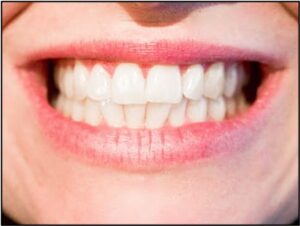By Ernie Mundell – HealthDay News
Published Jun 11, 2024
Key Takeaways
- Shortening the time you spend sitting in front of the TV could pay big dividends in terms of healthy aging
- As rates of exercise and healthy sleep replaced sitting, the odds for living to 70 or beyond in a healthy state rose
- Folks often do other unhealthy stuff — eating junk food, being isolated — when they’re watching TV
It’s tempting to binge-watch TV, but yet another study finds that when it comes to healthy aging, the less time on your sofa, the better.

The study looked at 20 years of data on more than 45,000 people taking part in the Nurses’ Health Study. All were at least age 50 in 1992 and free of chronic disease when they entered the study.
Researchers tracked lifestyle habits like time sitting at work, home and watching television, as well as their hours at home or work spent standing or walking at home. All that data was compared to information on how healthily (or not) they had aged over time.
What defined “healthy aging”? According to the team from Harvard’s T.H. Chan School of Public Health, it meant living to be 70 plus having no major chronic diseases, no impaired memory, and overall good physical and mental health.
One activity — watching TV while sitting — seemed particularly unhealthy, the researchers found.
“Replacing television time with light physical activity, moderate to vigorous physical activity, or sleep (in participants with inadequate sleep) were associated with better odds of healthy aging,” wrote a team led by Dr. Molin Wang, an associate professor of medicine in the department of epidemiology at Harvard.
More specifically, every hour per day where sedentary TV watching was replaced by even “light” physical activity in the home (for example, routine housework) upped a person’s odds of living to a healthy 70 or beyond by 8%.
If that hour of TV watching was replaced by “moderately vigorous” physical activity (for example, a workout), the odds of healthy aging rose by 28%, the study found.
Even folks who got less than the recommended seven hours of sleep per night gained a benefit in healthy aging if they got an extra hour of sleep each day instead of an hour spent watching TV from their sofa.
The findings were published June 11 in the journal JAMA Network Open.
Speaking with CNN, Dr. Andrew Freeman, director of cardiovascular prevention and wellness at National Jewish Health in Denver, said TV watching appears to be a particularly unhealthy pursuit — and not just because you’re not moving around.
“When people sit in front of TV, it usually brings all these other co-morbid activities, like eating junk food, TV dinners, failing to connect with others, and it even can interrupt sleep,” Freeman noted. He wasn’t involved in the new study.
And exercise — any way you can get it and for any length of time — can turn all that around. It’s “truly an unbelievable way to reduce cardiovascular risk and blood pressure,” Freeman said.
“My very strong suggestion is you should consider at work getting a standing desk if you can, or even a treadmill desk if you’re able and you have the space,” Freeman said. “If you’re sitting down for more than 30 minutes at a time, in my book, that’s probably too long, and you really want to try to move a little bit.”








